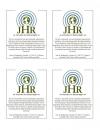“Immigration & the Indigenous”
Jacob Galfano
As the details to Senate Bill 1348 – Congress’s latest bipartisan effort toward comprehensive immigration reform – are hashed out by Democrats and Republicans, its central tenets feature improving border security and earned citizenship for the skilled.
Human rights activists continue to bemoan the proposition, as the legislation favors using a merit-based pathway to citizenship.
 Not only does this pose pragmatic challenges to the poor, it continues the colonial trend of forced assimilation; those that can naturalize risk losing cultural values in the proverbial pursuit of happiness.
Not only does this pose pragmatic challenges to the poor, it continues the colonial trend of forced assimilation; those that can naturalize risk losing cultural values in the proverbial pursuit of happiness.
Its impact on immigrants native to the Americas may be most poignant. When it comes to the indigenous, the xenophobic pathos of the melting pot combined with parochial policy solutions ought to sound familiar.
In the mid-19th Century, the Bureau of Indian Affairs (BIA) was created to address ‘what to do’ about a population that threatened colonial expansion.
Manifest destiny or not, the policies born from this governmental organization were painted in the economic condition: manage a growing American population or risk lucrative development opportunities.
Racial relations suffered, and once-flourishing tribal communities were relegated to the margins. Native Americans suffered at the hands of American hubris, enduring genocide, pervasive disease, and being stripped of their dignity.
As the debate over immigrants and their rights continues today, the focus shifts to Latin America.
The legal leverage that results from regional trade arrangements like the North American Free Trade Agreement (NAFTA) – brokered by industrialized nations – inequitably apply economic pressure to lesser-developed countries in the South and arguably cause migration to the North.
According to the U.S. Census Bureau, that region supplies over half of the 21 million foreign-born labor force and of the 34 million total foreign-born population. The percentage of those attaining legal citizenship has dropped from 59% in 1970 to 27% in 2004.
The notion of citizenship stems from the rule of law, and in part gains its meaning from the delineation of national boundaries. Contrarians to border enforcement argue that they can discriminate and arbitrarily exclude human beings from the resources they need for survival.

“In the case of the southern U.S. border, the people living on either side have been residing in those regions far longer than the border has existed,” says Arzoo Osanloo, Assistant Professor for Law, Societies, & Justice and Anthropology at the University of Washington. “Where an individual falls on the border, whether in Mexico or the U.S., is largely the product of the annexation of Texas by the U.S. in 1845.”
The mistreatment of non-citizens today conjures shameful memories of that of American Indians in the 19th Century.
From the Indian Removal Act of 1830 to the Termination Act of 1953, the ‘problem’ was consistently transferred elsewhere – resulting in a lack of access to basic human needs such as housing, medicine, and education.
Local solutions to problems related to immigration are similarly capricious. Criminalizing landlords who rent to illegal immigrants, mandating the use of the English language, even the argument that America needs low-wage laborers to sustain economic productivity … these are policies that perpetuate the cycle of abuse of the Other.
It is only fitting then that an immigrant said “Those who cannot remember the past are condemned to repeat it.”
Text of legislation (type “S.1348” in search box): http://thomas.loc.gov/




















